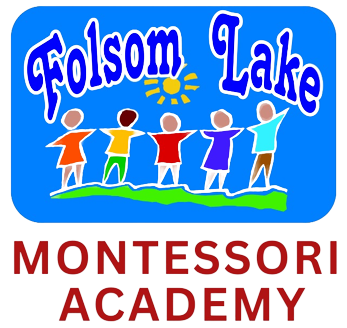Transitional Kindergarten and Kindergarten Program
Folsom Lake Montessori Academy
PROGRAMS
Folsom Lake Montessori Academy
Infant Care Program
Our Infant Care Program
6 weeks - 6 Years
Folsom Lake Montessori Infant Care Program is known for its individualized care and attention. Our primary goal is to make sure your child is safe, happy, discovering and learning all about the environment. As for you, the parents, we provide an assurance that your child is taken care of in the most responsible and beautiful learning environment. Our teachers are always around, and provide a warm, nurturing and safe environment, which caters to each and every individual in the classroom.
Our Curriculum
The daily schedule for infants depends upon where they are in their developmental phase. Our specialized teachers meet the goals of each infant by creating a strong relationship and addressing each child’s needs as they are presented.
Goals Of Our Infant Rooms
- Maintaining an open, friendly, and cooperative relationship with each child and family.
- Promoting feelings of security and trust in infants and toddlers.
- Playing, talking, singing, and reading to infants frequently
- Responding quickly in a soothing and tender manner to infants’ cries or calls of distress.
- Responding consistently to infants’ needs for food and comfort.
- Implementing individualized feeding plans for children; respects individual preferences and eating styles; sits with infants and shares family-style meal; models manners and good nutrition.
The basic curriculum consists of constant interactions between infants and their teachers. Our infant room encourages daily activities designed to support fine and gross motor skills as appropriate for each individual child.
Toddler
Engaging and Encouraging From the Beginning
2 to 3 Years Old
This is the time when children use their bodies, senses, and emerging problem solving skills to learn about and make sense of their world in the ways most meaningful and effective for them.
Dr. Maria Montessori was one of the first educators to recognize that the first few years of a child’s life are critical to the development of personality and intellect. Toddlers are actively seeking out information, they learn quickly and easily, and are especially interested in demonstrating independence. We allow them the freedom to learn as much as they can, as quickly as possible.
Our teachers give toddlers responsive, individual attention to help build skills in:
- Sensory and Perception
- Self-help
- Language
- Social and Emotional Growth
- Physical and Motor Skills
Preschools in Folsom CA
Teaching the Fundamentals in a Whole New Way- Folsom Preschool
3 – 4 Years Old
Children tend to see things that seem ordinary to adults as interesting and special. Practical life exercises like sorting, pouring, or washing dishes absorb them completely.
We recognized this as the beginning of control and coordination of mind and body. That’s why Montessori Preschool learning revolve around tangible experiences. Children use concrete materials to learn math, movable alphabets to explore language, and cubes, cylinders and other objects to categorize, find spatial relationships, and more. Our broad-based primary preschool program includes:
Our Folsom preschool program includes
- Science and Nature
- Sensorial
- Music and Movement
- Cooking and Nutrition
- Cultural Awareness
- History
- Geography
- Language Arts
- Mathematics
- Field Trips (Four field trips in a year)
Kindergarten
Rapid Advancement
Folsom Lake Montessori Academy opened a new classroom for our 4-5 year old students to create Pre-K/Kindergarten (Private Kindergarten program) class. This class will work with more workbooks on Language, Math & Science programs and Montessori materials. Our skilled teachers create an environment where students advance rapidly at a higher level to pre-k/kindergarden’s expectations
Transitional Kindergarten and Kindergarten Program
Our Transitional Kindergarten and Kindergarten Program
Folsom Lake Montessori Transitional Kindergarten and Kindergarten Program is known for its individualized care and attention. Our primary goal is to make sure your child is safe, happy, discovering and learning all about the environment. As for you, the parents, we provide an assurance that your child is taken care of in the most responsible and beautiful learning environment. Our teachers are always around, and provide a warm, nurturing and safe environment, which caters to each and every individual in the classroom.
Transitional Kindergarten Curriculum
In a prepared environment our young fours work in five different Montessori areas including, practical life, sensorial, language, math and cultural
In practical life they gain the sense of order, develop concentration and coordination through many activities. These practices strengthen their fine motor skills which are applied in other areas of the curriculum.
The sensorial area gives opportunity to our student to be aware of the environment and refine the child senses. Our pre- K students practice classification of sizes, shapes, compositions, texture, volume, temperature, weight and taste. These practices make layers of math learning for kindergarten as are considered as non-standard measurement.
As the pre-k children are in a sensitive period of language, we closely pay attention to their conversations and encourage them to express their needs, feelings, and thoughts. Expressive language is an important aspect for this age group. Children express their thoughts by drawing them.
In the academic area of language arts our students master A-Z sounds and make words by putting them together. As we start with moveable alphabets, children will break down and spell it out. This is the foundation for spelling, making phrases and advanced reading. Montessori pre-writing activities provide practices to form alphabet letters in the right form.
Our young fours work with Montessori math materials starting with quantity, then associate them with numbers. In math each individual works on linear counting and order of numbers in different levels according to his/her pace.
Montessori cultural curriculum introduces the whole world to our young students. This area includes botany, zoology, geography, art, nature activities and earth science. The lessons are presented in concrete forms. Also different art material expands children’s’ creativity.
Kindergarten Curriculum
The children make layers of knowledge based on what they have learned in Montessori pre-school. This is the time that students gain leadership qualities by teaching younger ones. The kindergarteners are encouraged to be role models and have respect and courtesy. The practical life activities for them are more challenging and require more focus and concentration. In the sensorial area kindergarteners learn make complex structures with materials and name the shapes and solids. All of the math lessons that were given before will be continued with the decimal system, place value, skip counting, fraction and computation. Telling time and money lessons also are parts of math curriculum.
As our kindergarteners are still in a sensitive period of language, the language lessons are more extensive. They work on phonics through the pink, blue and green series of Montessori materials. They practice fluent reading through phonic books from simple to advance. Learning sight words begin in kindergarten as well. After learning how to make words, they start to develop sentences and simple punctuation. The children are encouraged to put their thoughts in the form of drawings and sentences to describe the drawing.
The kindergarteners are put in small groups to work together to practice their team work. They are encouraged to stay on task and use time effectively. Cultural lessons are presented to kindergarteners more detailed and students start to read simple non-fiction books to get used to the informational texts.
Our aim is to make them ready not only for elementary school but for life.
Contact Us

Contact Us

